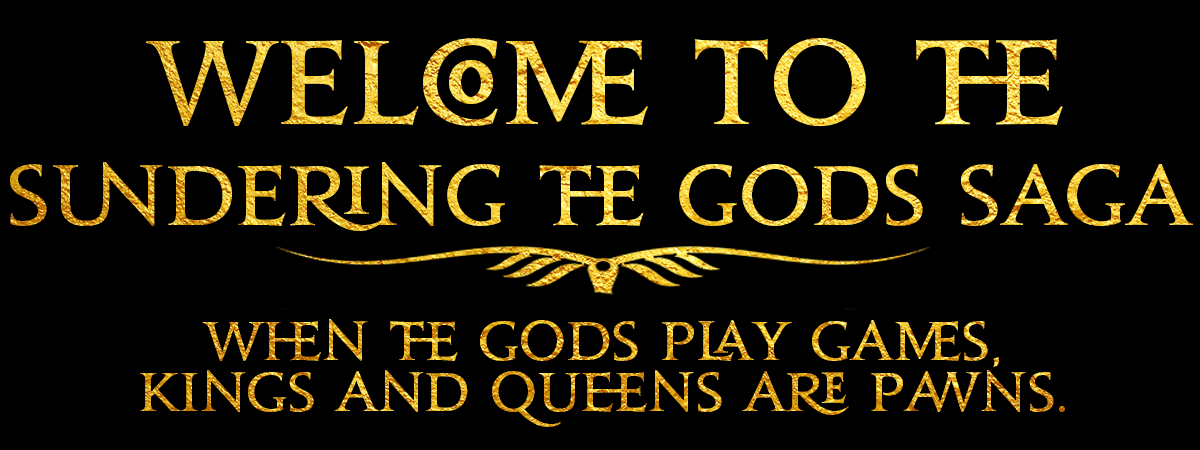DarÂ
(Concept Drawing by Joe Shawcross)
The Darâ people hail from the Ôlfin region, a cluster of islands between the Vandunêz and Anduras continents. The islands are dominated by jungles and mountains, and from remaining maps from the Age of God Wars and the Age of Warlords, are a fragment of what they used to be. Great cities disappeared, and every island has roads that lead into the ocean.
For a hundred years after the Great Forgetting the islands remained isolated from the outside world, creating a people insulated from even their relatives to the east, the Free Cities of Nomnevar and Ôlvin Klîn. They are rich in silver but poor in quality iron and gold, so when the outside world discovers them again they are at first seen as a backwards people. However, two events change this, the discovery of their relation to the wealthy Free Cities, and the outside world’s discovery of Latcu (unbreakable glass) surrounding the Ôlfin volcano.
Like the peoples of the Free Cities and Ôlvin Klîn, the Darâ worship the Pantheon of the Four Queens which is comprised of the King of Gods (Ibinû) and his Four Queens: Ûlotê (Virility, Life), Hutuvânu (War, Storms), Ofuzjê (Wealth, Love), and Mêtêsê (After-Life, Justice). There are a multitude of lesser deities.
A Short Version of the Darâ Creation Myth
Ibinû is the universe as the supreme being. He sleeps and dreams, and his dreams create mighty beings, with each creation sapping a bit of his power, so every day he awakes, he slays his dream creations to recoup his power, until one day, he awakes to a creation who looks exactly like himself. He spares his "son" with the understanding that his Son keep an eye on his creations as he sleeps. The Son agrees in order to live, but plots betrayal, and kills some of the creations of his father as Ibinû sleeps, taking their power for himself. In addition, he warns some of the creations, and they disperse into the universe.
Then, one night, Ibinû dreams of four beautiful women, and the Nameless Son keeps them by his side. When Ibinû awakes, the Nameless Son convinces his father to let them live as his servants and wives, to entertain Ibinû in his waking hours. The Nameless Son promises that he will watch them as Ibinû sleeps and keep them in line for his father. Ibinû foolishly agrees, and over the next several eons, the Four Queens become extremely powerful. They confront Ibinû to kill him and take all his power for the Nameless Son.
Ofuzjê, Ibinû uses Fire to defeat her, the sparks flying into the universe to create the stars, and in her final defeat, he envelopes her in a flaming trap, and she becomes the sun, or her prison is the sun, depending on which sect is telling the tale.
Ûlotê, Ibinû defeats using earth, and she is entrapped, creating the world of the Sister Continents.
Mêtêsê is defeated using water, and she is frozen, creating the moon (an association between the moon and the tides) and the icy spray falls to the earth, creating the oceans.
Hutuvânu is defeated by winds, which smash her body into the world, dissipating her body into the skies, and she forever roams the winds.
The Son flees into the depths of the universe, later to return with other creations to continue the war: the Darâ explanation for the God Wars and all the races of the Sister Continents.
The Queens are defeated and enslaved, but Ibinû can never sleep again if he is to contain them. In an effort to keep himself awake and alert, he creates the Darâ, who via their prayers are to aid him in his vigil. It is also seen as part of the Darâ duty to make sacrifice to the Queens, to placate them as best they can.
Additional Notes:
Animal sacrifice is a staple of the Four Queens religion, and in the darker corners of the religion (in particular those sects associated with the Queens and the Nameless Son) human sacrifice and the sacrifice of other sentient races is not unheard of.
The Nameless Son remains something of a devil figure who hopes to trap Darâ souls and use them to feed his own powers.
The Four Queens
Ûlotê:
Dark Aspect- Famine, Disease, Infertility
Ibinû Aspect- Verility, Health, Abundance
Hutuvânu:
Dark Aspect- War, Storms, Civil Unrest
Ibinû Aspect- Peace, Calm Weather, Political Stability
Mêtêsê:
Dark Aspect- Darâ Hell, "Bad Luck", Madness
Ibinû Aspect- Darâ Paradise, Justice, Emotional Peace
Ofuzjê:
Dark Aspect- Poverty, Crime, Chaos
Ibinû Aspect- Wealth, Law, Order

